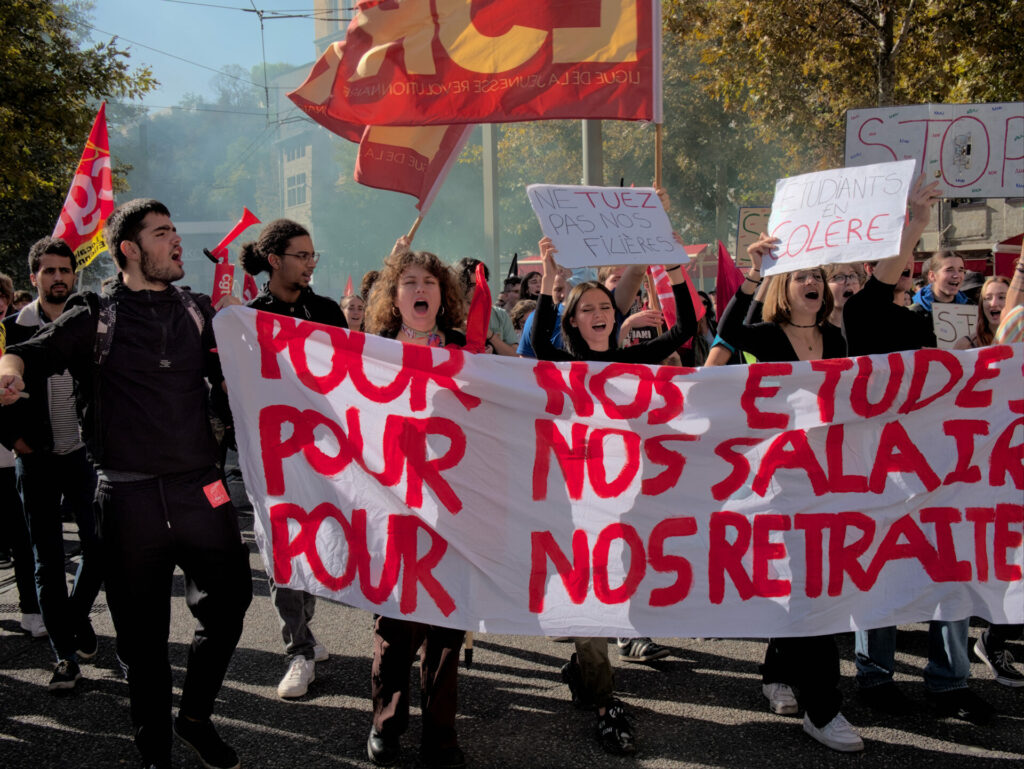A senior Belgian-American financier has predicted deepening social unrest across Europe as high inflation and soaring energy prices continue to lay waste to the continent's industrial base and European workers' purchasing power.
In an interview with l'Echo, former Executive Vice-President of the New York Stock Exchange Georges Ugeux further suggested that, although Belgium's current system of automatic government-mandated wage indexations will largely protect its citizens from the worst effects of rising prices, workers in other European countries will likely not be so fortunate.
"If inflation was 10% last year and it falls back to 8% [this year], that's still 18% [actually, 18.8%] over two years," Ugeux said. "The problems of purchasing power could therefore become even more acute. In a country like Belgium, wage indexation protects purchasing power. But Belgium is an exception. Everywhere else, I think we will see social unrest and demonstrations by disappointed and dissatisfied people."
Widespread pain
In addition to rising social unrest in Europe, Ugeux forecast that recent interest rate hikes by the US Federal Reserve and the European Central Bank (ECB) will increase the real value of many emerging economies' national debt, thereby causing significant harm to citizens across the Global South as well.
"Given the rise in interest rates, debt will start to cost significantly more," he said. "And we could see a series of problems in emerging countries, and also in large groups of companies that are over-indebted. To the extent that the rates are four or five times higher than a year ago, this is likely to do damage."
Rather worryingly, Ugeux noted that this problem could become exacerbated in the coming months as central banks maintain or even increase interest rates to temper soaring prices.
"The message from the central banks is clear: lowering inflation implies keeping rates at high levels," he said. "I think that 2023 will not be a year of rate cuts. Especially since current interest rates are still substantially lower than inflation... So I don't dare to say yet that the worst is over. Even if we can glimpse light at the end of the tunnel."
Related News
- Belgium at 'real risk of deindustrialisation', leading CEO says
- New study paints stark picture of Belgium's growing economic despair
Ugeux is not the first Belgian businessman to have warned about the dangers to Europe's economy in recent times. Just last month, Etex CEO Bernard Delvaux suggested that Belgium and indeed Europe as a whole are at "real risk of deindustrialisation", and claimed that without urgent government intervention an increasing number of European companies will likely relocate to the US or Asia to take advantage of lower energy costs — a possibility he described as "very dangerous for Europe".
"What is very disturbing is that while in Europe, the [energy] price remains three or four times that of before [the energy crisis], the United States has only had a 20% increase in the cost of energy, and Asia even less," Delvaux said. "For several months, the energy-consuming industrial groups that have the choice have been reducing their activity in Europe to go produce elsewhere."
"It is more as a citizen than as the boss of Etex that I want to sound the alarm. We are facing a real risk for the industry in Europe," he added.

